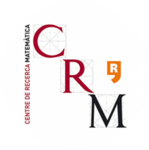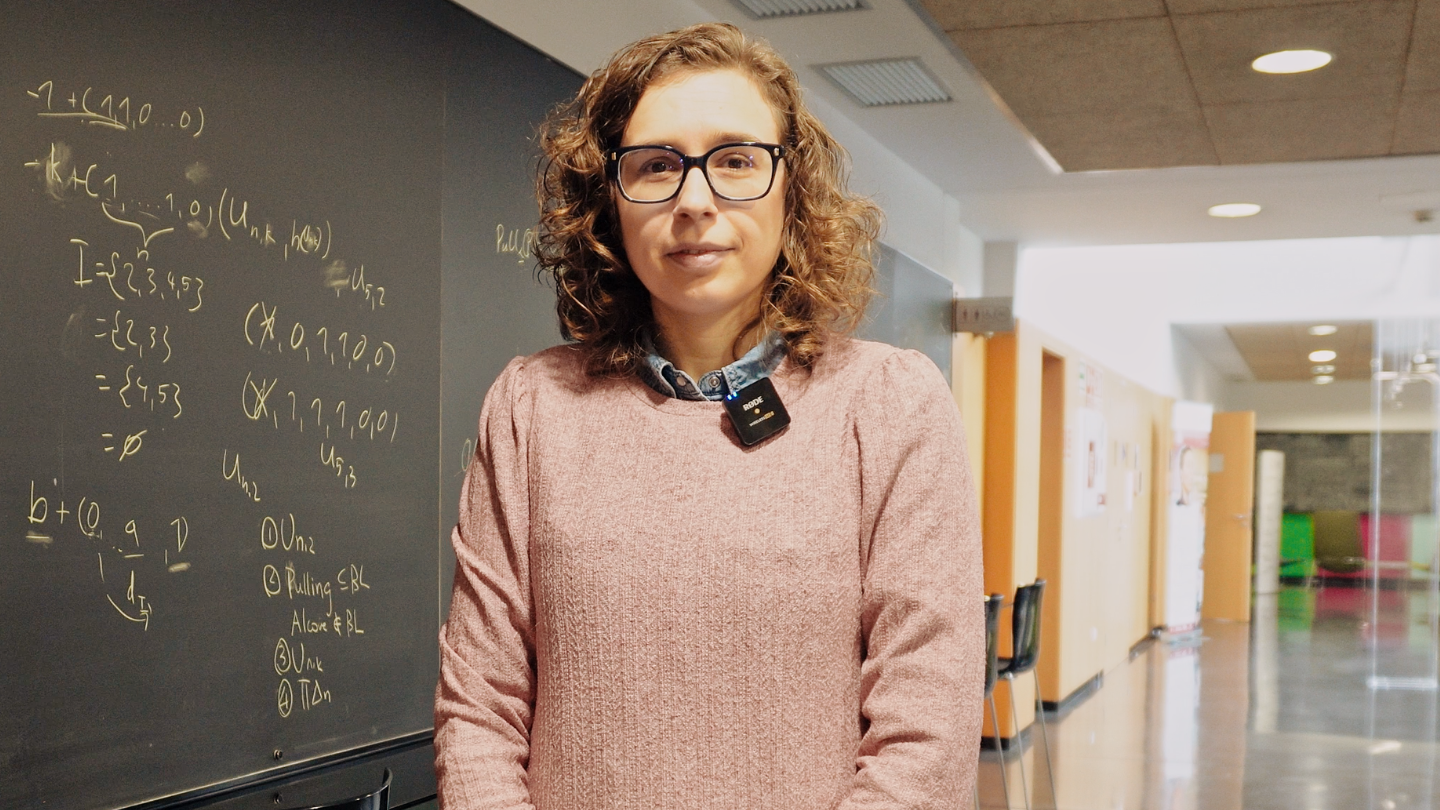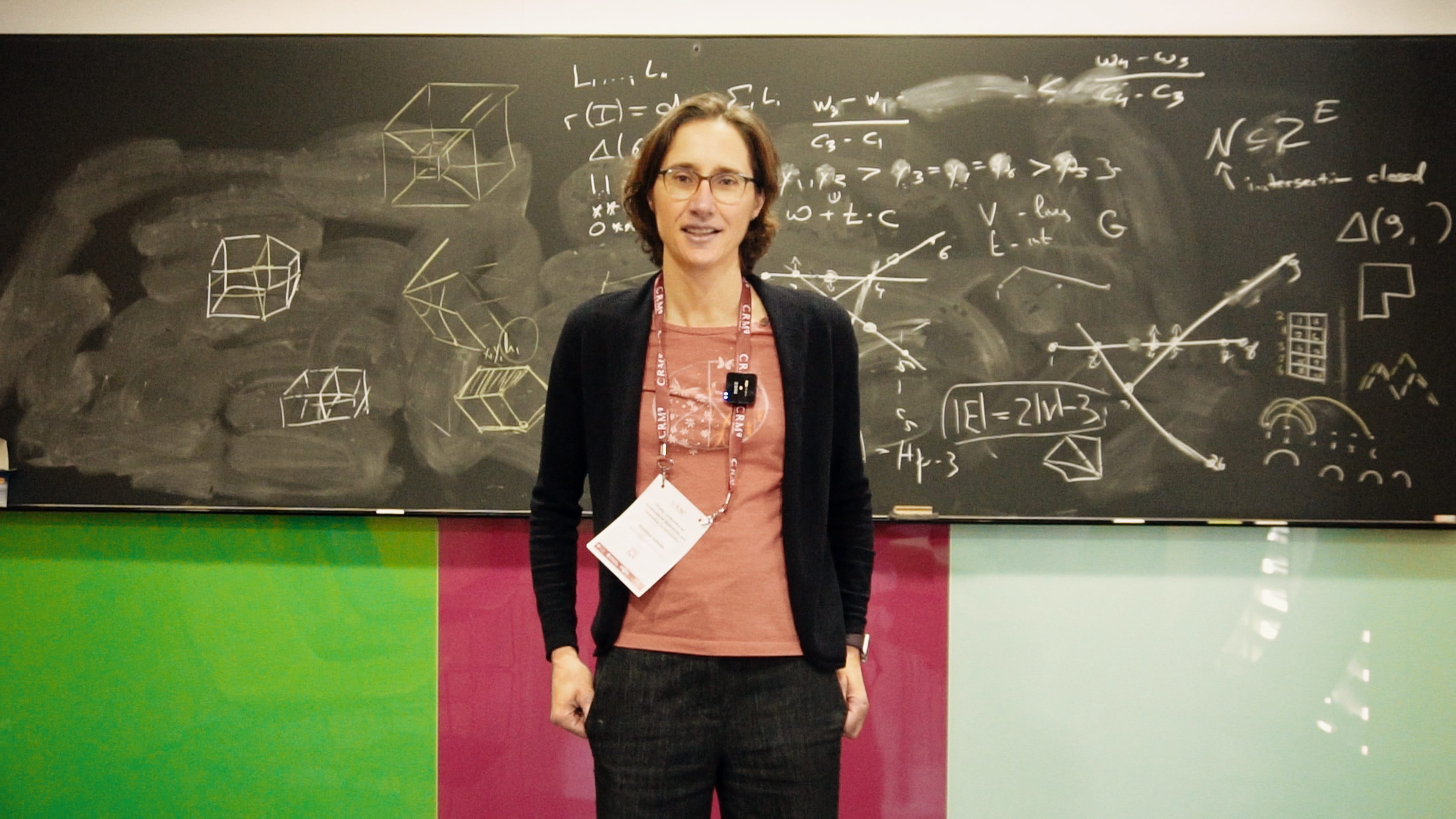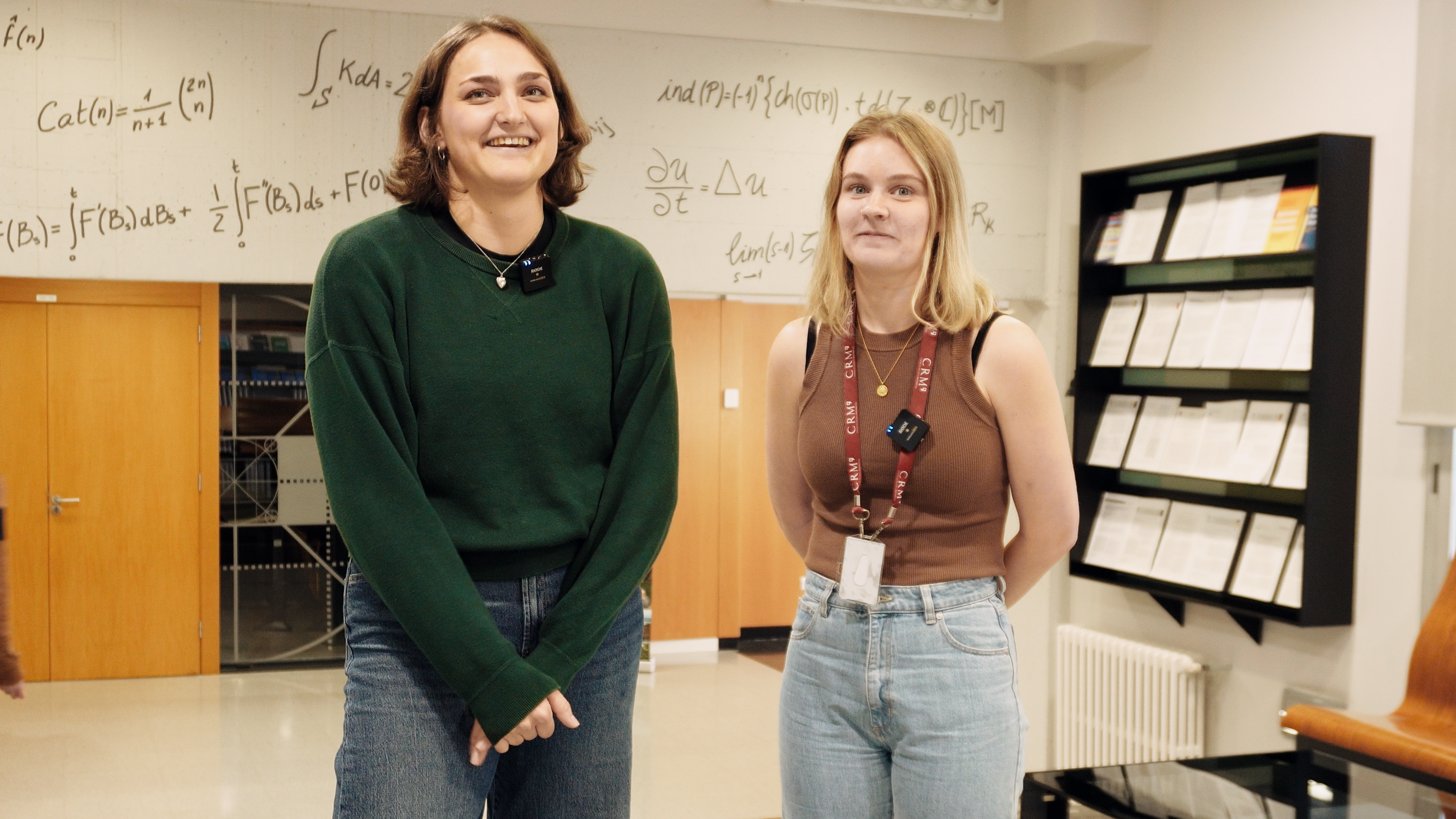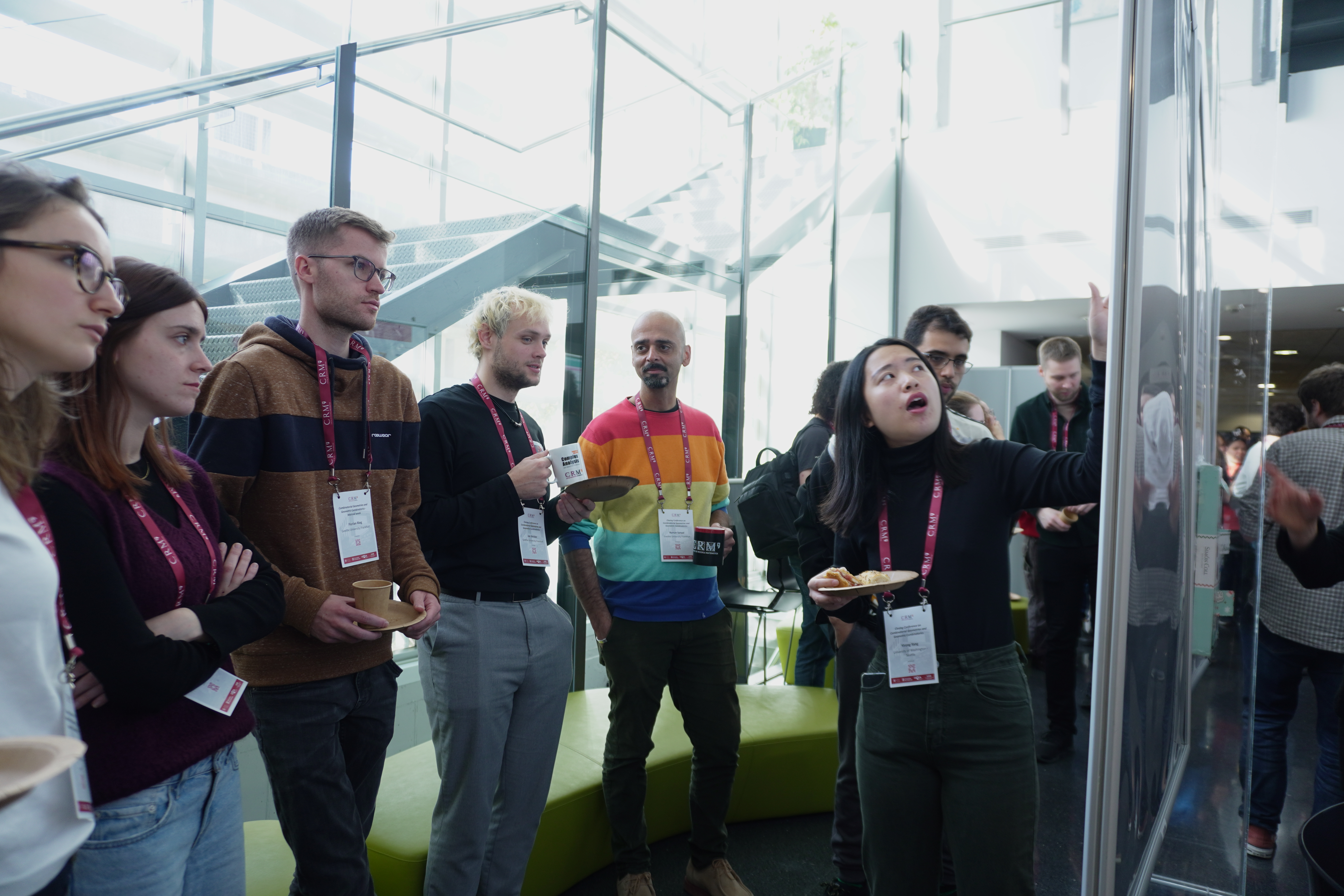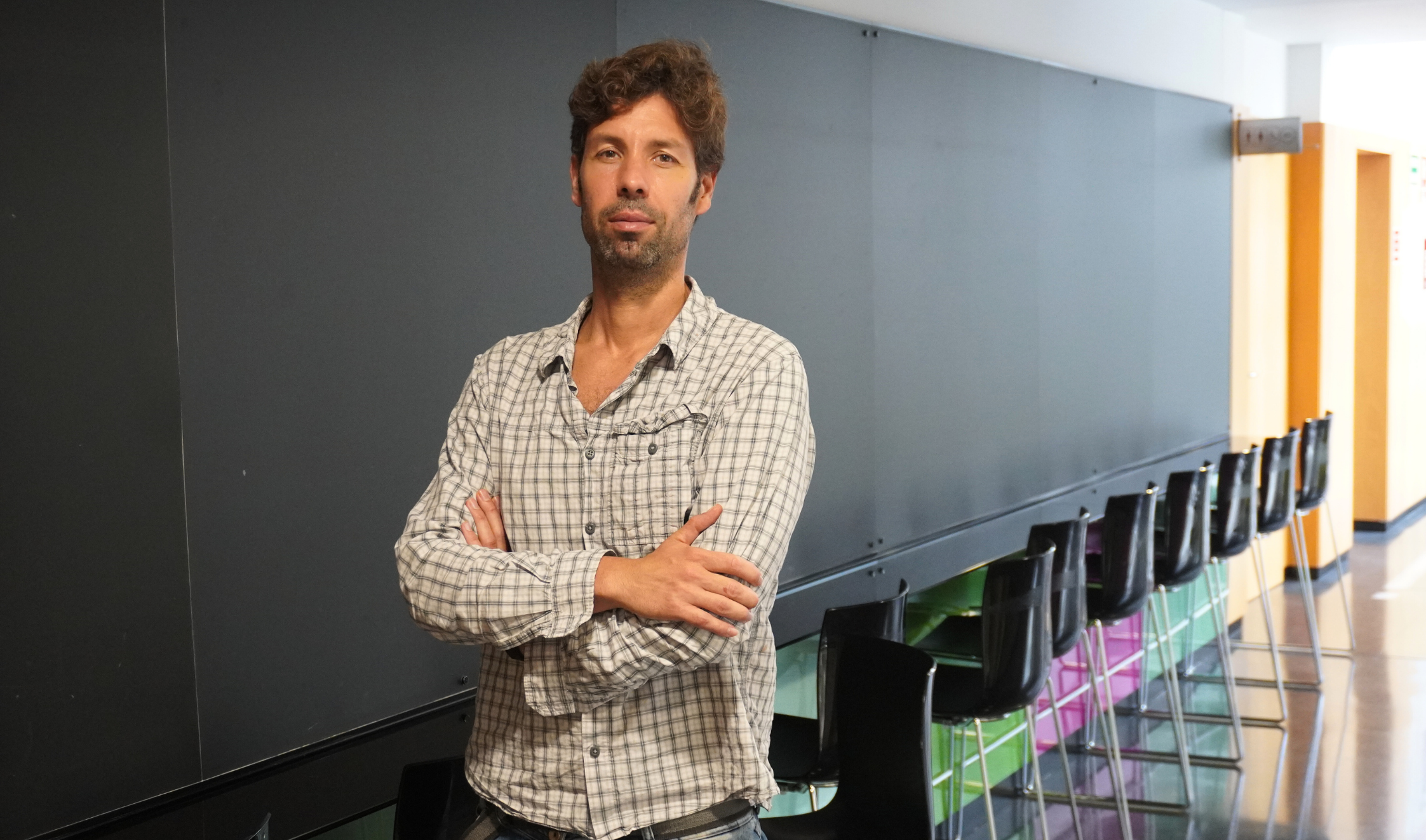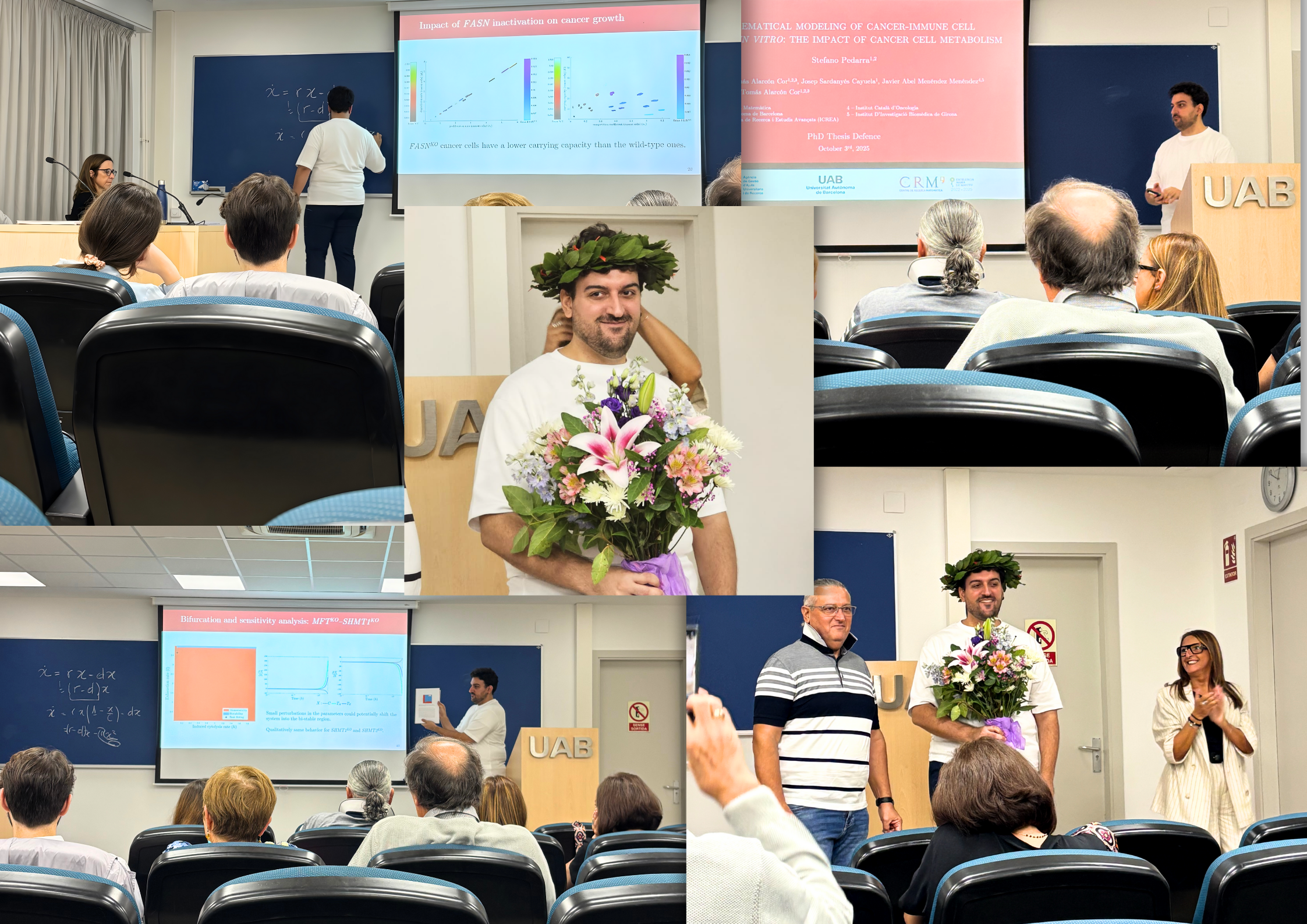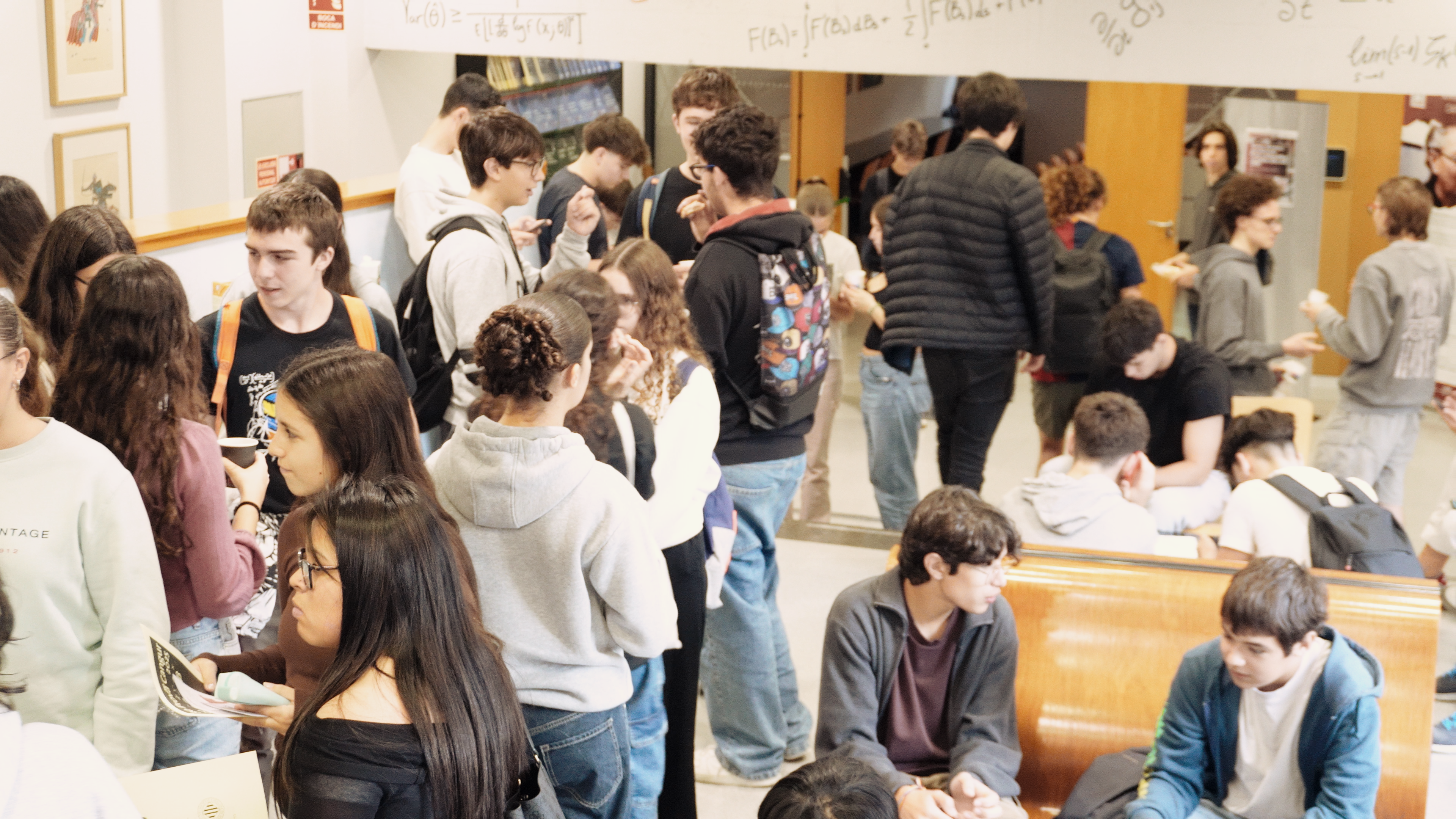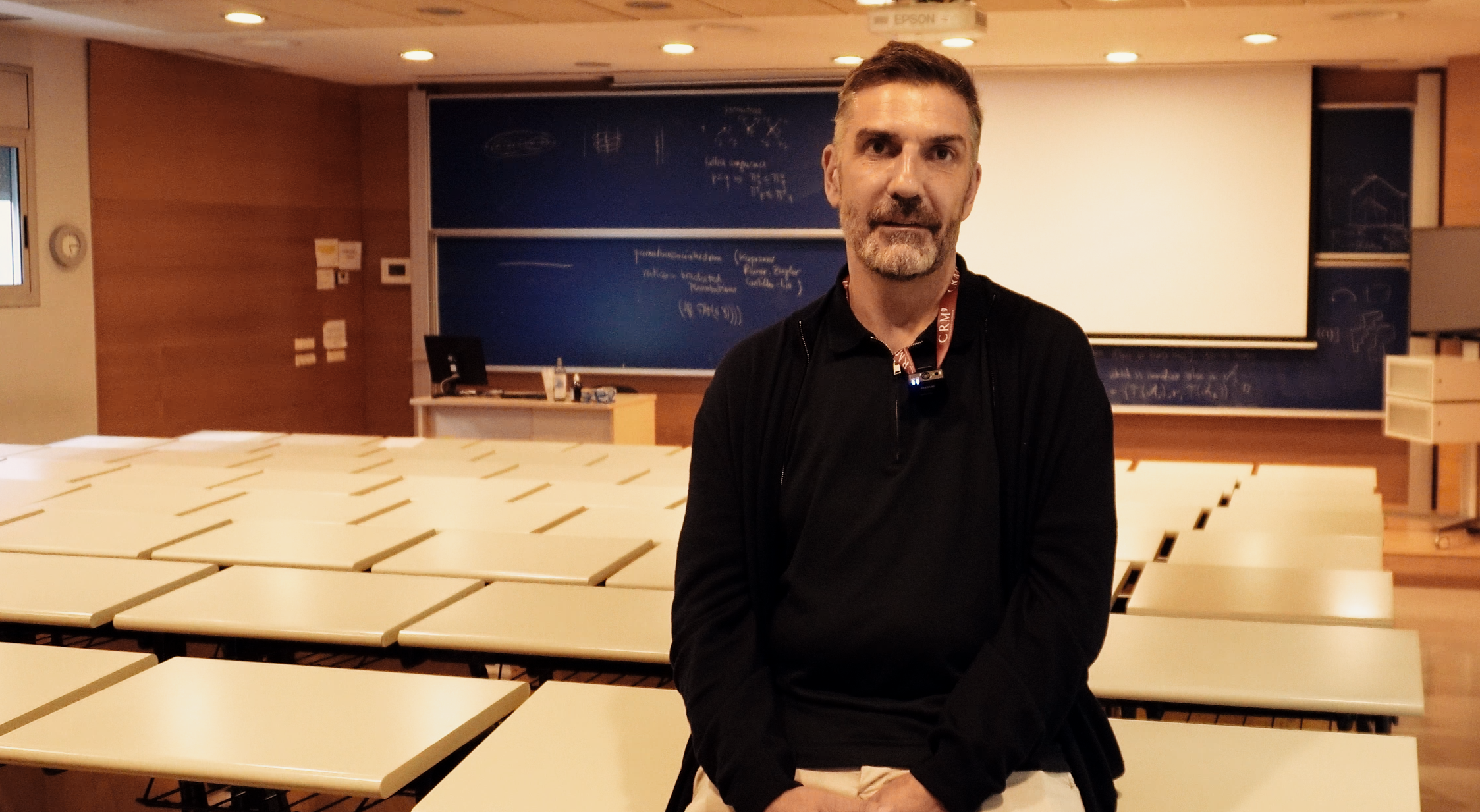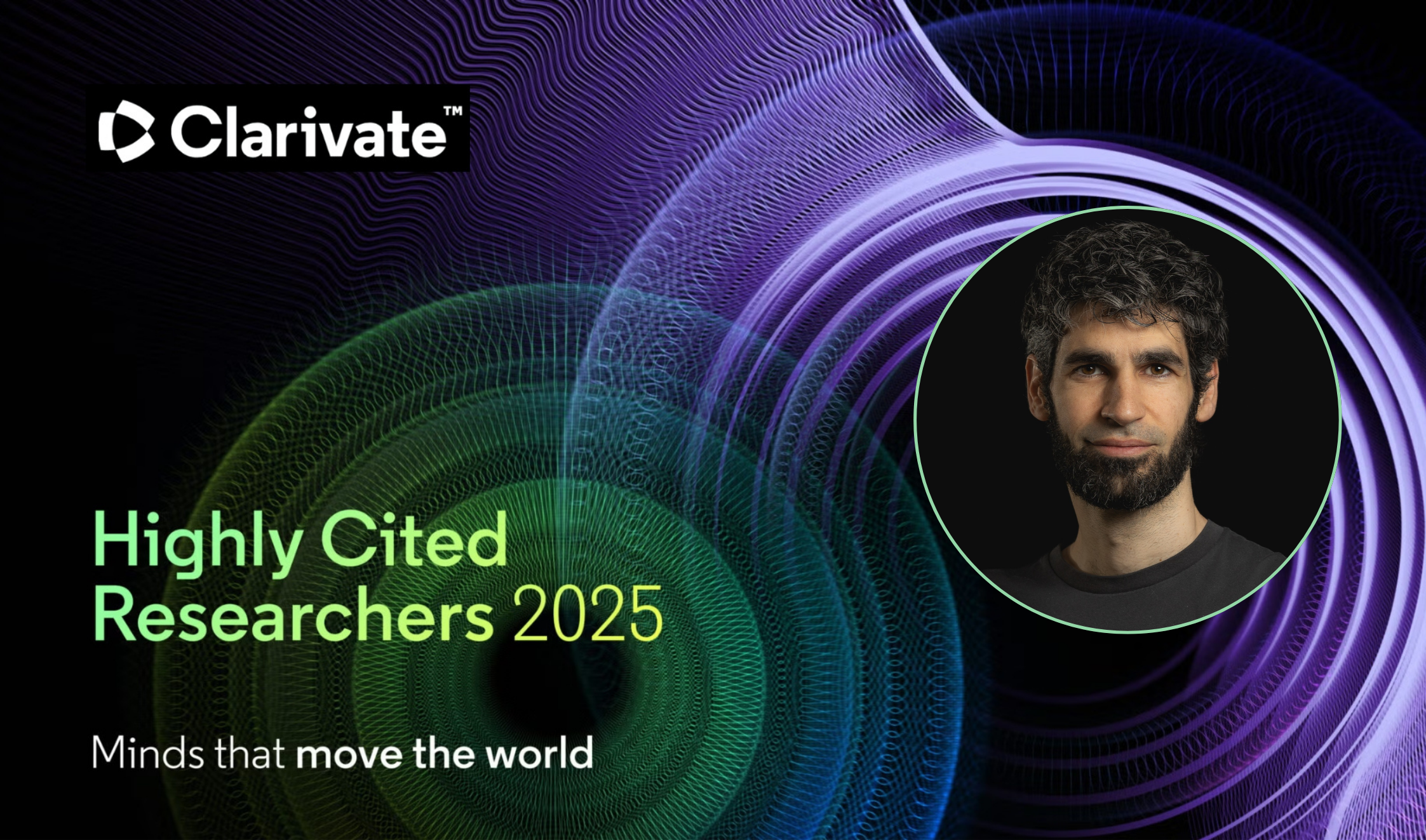
ICREA professor at the Universitat de Barcelona and CRM affiliated researcher Xavier Ros-Oton appears on Clarivate’s Highly Cited Researchers 2025 list, which this year reinstates the mathematics category after two years of exclusion.
Citations are a strange way to measure influence. They don’t count the theorems you prove, but the conversations you generate: who responds to your arguments, who extends your proofs, who finds in your results a starting point to explore territories you hadn’t envisioned. In this sense, Xavier Ros-Oton maintains many conversations at once. The Barcelona-born mathematician, an ICREA professor at the Universitat de Barcelona and an affiliated researcher at CRM, has been recognised as one of the 65 most influential mathematicians in the world, according to Clarivate’s Highly Cited Researchers 2025 list, published on November 12. The list identifies researchers whose articles rank in the top 1% most cited in their respective fields over the past eleven years. Among more than 6,800 researchers from all scientific and social disciplines, only 65 are mathematicians.
That mathematics returns to the Clarivate list this year is news in itself. The scientific intelligence company eliminated the category in 2023 after detecting anomalous patterns indicating that some researchers were “gaming” the system. For two years, mathematics disappeared from the list while Clarivate worked to develop more sophisticated filters. In 2025, the discipline has returned with reinforced integrity criteria. The company consulted with Domingo Docampo, a mathematician at the University of Vigo, who developed an independent algorithm to evaluate citation quality based on who cites and in what context. The 65 who now appear represent, according to Clarivate, greater diversity and include mathematicians and statisticians who have received significant recognition from their peers, many of whom have been awarded top-tier international prizes.
Conversations across disciplines
“For me, it’s a satisfaction to know that some of my articles, to which we’ve dedicated many hours of work with my collaborators, have an impact on the work of other researchers,” Ros-Oton explains. But what excites him most isn’t necessarily the volume of citations, but the type of conversations they generate. “I especially like it when ideas or results from my articles are used in very different areas, for example, in geometry or probability.”
“I especially like it when ideas or results from my articles are used in very different areas, for example in geometry or probability.”
A recent example: a result on minimal surfaces published in Quanta Magazine uses techniques developed by Ros-Oton in the context of free boundary problems. That a result on regularity in PDEs ends up helping understand singularities in geometry is exactly the type of influence that citations try to capture, but which is often difficult to quantify.
Ros-Oton is aware of the limitations of metrics. “Citations don’t reflect all the work behind them; they often don’t even reflect the quality of an article,” he notes. “The ones I consider my best articles aren’t necessarily the most cited, and the number of citations depends on many different factors.” Clarivate’s recognition, then, isn’t an assessment of which works are most important, but of which have generated the most dialogue.
Looking ahead
Beyond consolidating results on classical problems, Ros-Oton is already exploring new territories. “Recently, I started to work on the Boltzmann equation, which is fundamental in statistical mechanics, and there are many mathematical questions we still don’t know how to solve,” he explains. The Boltzmann equation describes how gases evolve at the molecular level, and despite its physical importance, many of its mathematical properties remain a mystery.
But there’s another direction Ros-Oton considers especially promising: the mathematical foundations of machine learning algorithms. “I think it’s a point where researchers from different areas could meet, and there are questions from theoretical computer science, probability, PDEs, analysis, and dynamical systems. In fact, CRM will host a workshop on this topic from January 7-9, organised by Ros-Oton together with Joan Bruna (NYU) and Domènec Ruiz-Balet (UB). “I would encourage all those potentially interested to participate,” he adds.
There are ways to influence that don’t appear in any database: conversations in conference hallways, questions you ask in a seminar that change the direction of a proof, the student you train who ends up opening a new line of research. But in a field as vast and globalised as mathematics, citations are a way to see who’s talking to whom, and what ideas are moving through the world.
That Xavier Ros-Oton ranks among the sixty-five most cited mathematicians on the planet tells you that the tools he has built and the results he has shaped are helping others push further.
|
|
CRM CommPau Varela
|
Seeing Through Walls: María Ángeles García Ferrero at CRM
From October to November 2025, María Ángeles García Ferrero held the CRM Chair of Excellence, collaborating with Joaquim Ortega-Cerdà on concentration inequalities and teaching a BGSMath course on the topic. Her main research focuses on the Calderón problem,...
Fuel Cells, Filtration, and Decades of Collaboration: A Conversation with Brian Wetton
Brian Wetton, from the University of British Columbia, spent last October at CRM collaborating with Tim Myers on computational models for filtration systems. His career has evolved from pure numerical analysis to applied mathematics with industrial partners, working...
From Barcelona to West Bengal: Chemistry Meets Mathematics to Enhance Water Filter Design
Researchers at the Centre de Recerca Matemàtica, in collaboration with IIT Kharagpur and UPC, have developed a mathematical model that accurately predicts the performance of fluoride-removal water filters made of mineral-rich carbon (MRC) and...
Polytopes, Matroids, and the Friends You Make: Martina Juhnke on Two Months at the CRM
The Centre de Recerca Matemàtica recently hosted a research programme on Combinatorial Geometries and Geometric Combinatorics, focusing on the overlap between polytopes and matroids. Martina Juhnke, a member of the scientific committee, reflects on how this programme...
BAMB! 2025: Participants Return to the CRM for Research Stays
In October 2025, the Centre de Recerca Matemàtica hosted Josefine Meyer (ISTA) and Cate MacColl (University of Queensland) for a month-long research stay following their participation in the BAMB! Summer School. Despite studying vastly different subjects, from...
Connecting Shapes, Patterns, and Ideas: the Closing Conference on Combinatorial Geometries and Geometric Combinatorics
During five days, the CRM hosted the Closing Conference of the MDM Focused Research Programme on Combinatorial Geometries & Geometric Combinatorics. The event featured plenary talks, contributed sessions, and posters on topics from matroids and polytopes to...
New Horizons for H- and Γ-convergence: From Local to Nonlocal (and viceversa)
The researchers Maicol Caponi, Alessandro Carbotti, and Alberto Maione extended the H- and Γ-convergence theories to the setting of nonlocal linear operators and their corresponding energies. The authors were able to overcome the limitations of classical localization...
Diego Vidaurre joins the CRM through the ATRAE talent programme
Diego Vidaurre has joined the Centre de Recerca Matemàtica through the ATRAE programme, bringing his expertise in modelling spontaneous brain activity across multiple data modalities. His work focuses on understanding how the brain’s intrinsic dynamics shape...
El CRM a la Setmana de la Ciència: una ruta entre dones, formes i pensament
El CRM va participar en la 30a edició de la Setmana de la Ciència amb una ruta guiada que va combinar les biografies de dones matemàtiques amb obres d'art del centre, connectant ciència, història i creació artística.El 12 de novembre, el Centre de Recerca Matemàtica...
Stefano Pedarra Defends his PhD Thesis on the Interaction between Tumour Cells and the Immune System
Stefano Pedarra has completed his PhD at the Centre de Recerca Matemàtica with a thesis exploring how tumour-cell metabolism shapes the immune system’s ability to fight cancer. His work brought mathematics and biology into direct conversation, from building models to...
Els estudiants participants a la prova de preselecció de Bojos per les Matemàtiques visiten el CRM
La prova de preselecció de Bojos per les Matemàtiques va reunir estudiants de tot Catalunya a la UAB i al CRM, amb presentacions a càrrec de Montse Alsina, presidenta de la Societat Catalana de Matemàtiques, Núria Fagella, degana de la Facultat de Matemàtiques i...
Jordi Mompart highlights the role of artificial intelligence in sport at the XIII GEFENOL-DIFENSC Summer School
The XIII GEFENOL-DIFENSC Summer School gathered over thirty researchers from across Europe to explore how statistical physics helps explain complex phenomena in biology, ecology, networks, and social systems. In his closing lecture, Jordi Mompart (UAB) examined how...

